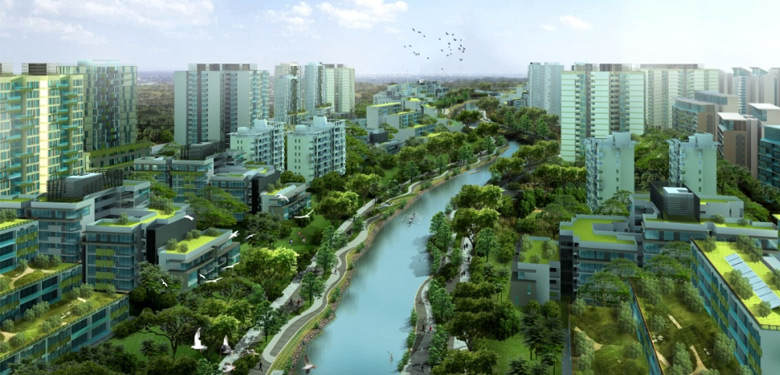
Eco-towns and sustainable lifestyles of the future
Sustainable business and consumption initiatives have traditionally been driven by compliance with regulations. Now times are changing, and we are seeing innovative businesses benefit from green investments and products promoting sustainable consumption and lifestyles.
Simultaneously, the United Nation’s 2030 Sustainable Development Agenda, has too, become an influence on the sustainability goals of companies. In terms of promoting sustainable lifestyle, SDG12: Ensure sustainable consumption and production patterns, asks both business and their consumers to embrace responsible consumption. To ensure that both parties are working in conjunction, there is an increasing need to engage general public, government and private sector to determine the ways in which regulatory framework can be more business friendly to further promote sustainable lifestyles of their consumers.
With this in mind, UN Environment and Institute for Global Strategies (IGES) has published a Sustainable Consumption Guide for Policy Makers. The guide shares the gaps within existing policies related to sustainable consumption and solutions for policies to encourage sustainable consumption and production in the future.
Yet, despite gaps within existing policies, there are businesses in Asia who are ahead of the trend – acting as leaders, beyond compliance. Two examples are IKEA and Tesco Lotus.
Today, 54% of the world’s population live in urban areas and that number is expected to grow to 66% by 2050. This means that in the near future, more people will be living in densely populated areas and smaller living spaces. IKEA in Thailand is looking to help ease their customers through the transition, launching the Sustainable Living Project. The Project follows the journey of families who wish to live comfortably while reducing their water and electricity usage, decreasing the waste they produce, while leading healthier lives within smaller living spaces. The range of products include pressure cookers, reusable food containers, waste water recycling as well as herb growing materials.
Aside from increasing efficiencies and decreasing waste within the household, retailers are able provide their customers with the solutions to combatting the problems often felt within urban areas. Waste management is a monumental issue: all over the world, including Hong Kong, landfills are reaching capacity far ahead of schedule whilst solutions are lagging. Responsible industry leaders and businesses understand that to operate within urban areas, the burden of waste cannot solely be placed on the consumer. Tesco Lotus in Thailand has recently launched the “What’s Edible is Shareable” programme to reduce the amount of food sent to landfill. The programme uses the farm-to-fork approach, reducing waste along the entire supply chain. Starting with partnerships with producers to ensure that crops match current market demands, all the way to providing innovative packaging to prolong freshness. Furthermore, once at the store, food that is not in perfect condition yet still safe to consume is offered at incredibly low prices to incentivize customers. At the end of the day, all unsold (but edible) food is donated to charities like Thai Harvest SOS, and the rest into bio-fertilizers. In addition to food waste, Tesco Lotus is also working to reduce plastic waste with initiatives including ‘Proud to not Use Plastic Bags’ campaign – saving around 40 million plastics bags in 2015.
While companies such as Ikea and Tesco Lotus are leading the way in terms of providing options to allow consumers lead more sustainable lifestyles, what is needed to push those who are not yet there?
Within the United Nations, the UNITAR body helps to provide diplomatic training through public awareness. Since 2010, CIFAL Jeju has been operating under this UN body to help promote green growth at the local level. Through the exchange of strategies, knowledge and experience, CIFAL Jeju aims to facilitate partnerships among government organizations, civil societies, private sectors and academia for city-to-city cooperation throughout the Asia-Pacific region. Their knowledge-sharing programmes range from waste management and green growth to sustainable tourism. While this serves as one method to motivate businesses to support a more sustainable future, is it what is missing to support knowledge sharing between government bodies and private sectors?
Join us at the CSR Asia Summit in Bangkok on 26-27 September where, in partnership with UN Environment, we will learn from industry leading case studies from businesses who are allowing their consumers to live more sustainably (Day1. 14:00 – 15:30). Using these examples, we will explore how policy makers can further facilitate the movement towards sustainable consumerism and the transition to more sustainable cities, in addition to discussing the limitations that may impede in the efforts of businesses to move in this direction.
Photo credits: The Global Goals